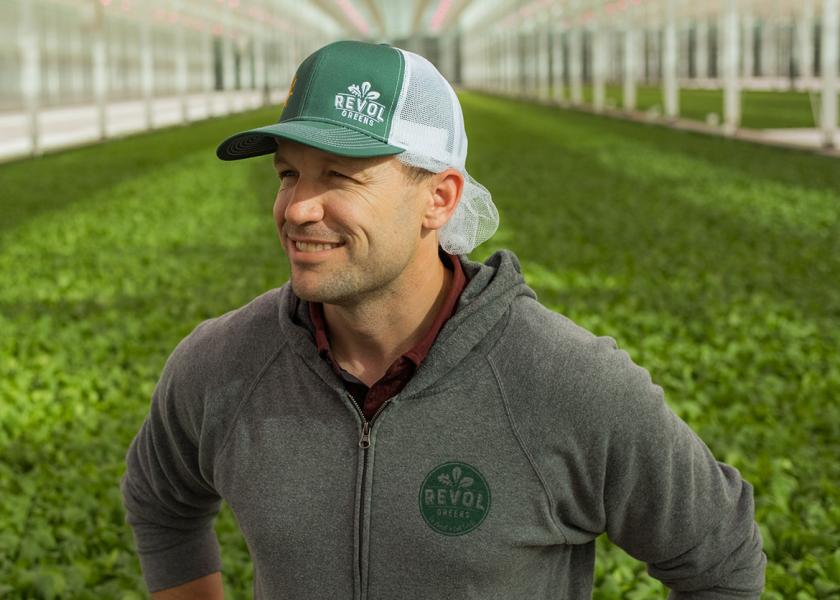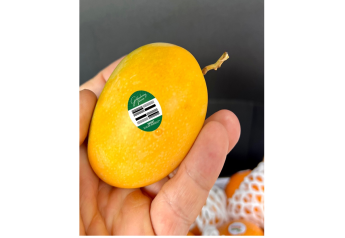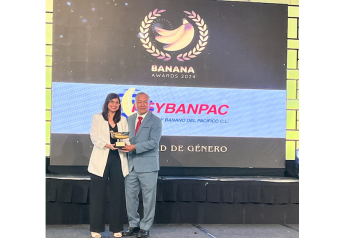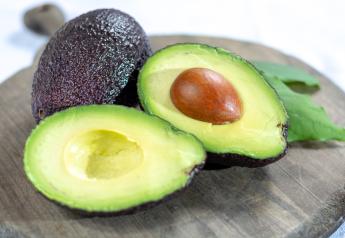Green ambition: Revol Greens chief revenue officer shares plans for growth

Greenhouse grower Revol Greens, which cultivates more than 20 million pounds of non-GMO lettuces annually, has been steadily adding to its executive team in the last several months to support the company’s ambitious growth plan and goals. The Owatonna, Minn.-based company said it harvests and delivers its packaged lettuce products within one day. To learn more about the greenhouse lettuce producer, with locations in California, Georgia, Minnesota and Texas, The Packer recently connected with Tom Thompson, chief revenue officer, for an email interview. The following has been edited for length and clarity.
What is the state of greenhouse-grown produce? Is this the future of farming or simply a piece of the complex puzzle?
THOMPSON: The Controlled Environment Agriculture (CEA) industry has grown tremendously over recent years but there is, of course, not a monopoly on the future of farming and never a straight line towards innovation. Addressing our industry’s challenges will take a combination of advancements in both greenhouse and traditional farming methods across fresh categories.
For the salad and lettuce category specifically, greenhouse-grown does solve a number of challenges that traditional farmers face — from a growing need for more organic production to labor constraints to more of a focus on measuring and reducing inputs across the food chain to achieve Environmental, Social and Governance (ESG) goals. Revol Greens can achieve these goals in a way that is cost competitive, and do so in an environment that is extremely traceable.
What is the role of technology in today’s greenhouses? Have advancements changed the greenhouse landscape?
Technology permeates every aspect of our business. At Revol Greens, we like to say that we are creating the perfect environment for our products — 365 days a year in any climate — and to achieve that we measure every ounce of inputs and outputs within our operation. There are a couple of specific examples that can be shared that impact our entire growing environment, and others that impact our growing method directly.
With regard to the growing environment, using as much sunlight as possible is critical to us, which of course is inherent to a greenhouse. We do not want to offset the gains we see in improving efficiency per acre offset by 100% reliance on artificial light and the CO2 output that comes with that. The algorithmic advancements around optimizing this natural light, humidity, water nutrition, and many other climate variables, continue to be key technological focuses for us that fuel our growth.
From a product standpoint, we believe organic certification is important to consumers as it is a stamp, they trust that complements our goals of sustainable farming in a greenhouse. We were committed to achieving organic, but only if it meant without the use of animal byproducts.
Through a lot of research and development, Revol Greens introduced the industry’s plant-based nutrient source, Plant-Fed Organic, which is used in our USDA Certified Organic Greens.
Do you have plans for continued expansion? What’s next for Revol Greens?
Revol Greens grows organic lettuces at scale from coast to coast. With locations in California, Georgia, Minnesota and Texas, Revol Greens grows 20 million pounds of non-GMO lettuces annually. By the end of 2022, we will have 46 growing acres across in the U.S., yielding as many greens as it would take 1,500 acres of traditional farmland to produce. Our goal is to reach 100% of the U.S. with safe, quality leafy greens within 24 hours of harvest.
What makes greenhouse-grown produce compelling to the consumer? Do some consumers specifically seek out greenhouse-grown produce?
Organic, locally grown, and sustainability-driven brands continue to see double-digit category growth. The sustainably minded consumer looks for products that make a positive impact in limiting natural resources in the production of the products, especially in drought-stricken regions such as California.
The salad set has a lot of complexity to it and, of course, trial is key before consumers will specifically seek out greenhouse-grown produce, but once consumers experience the product difference and learn the benefits, our repeat purchases outpace the alternatives on the shelf.
Beyond the consumer, assurance of supply and simplification of the supply chain are also compelling points to the trade, as we look to reduce the time in transit and order lead times, maximize shelf life and reduce food waste across all segments of the supply chain.







